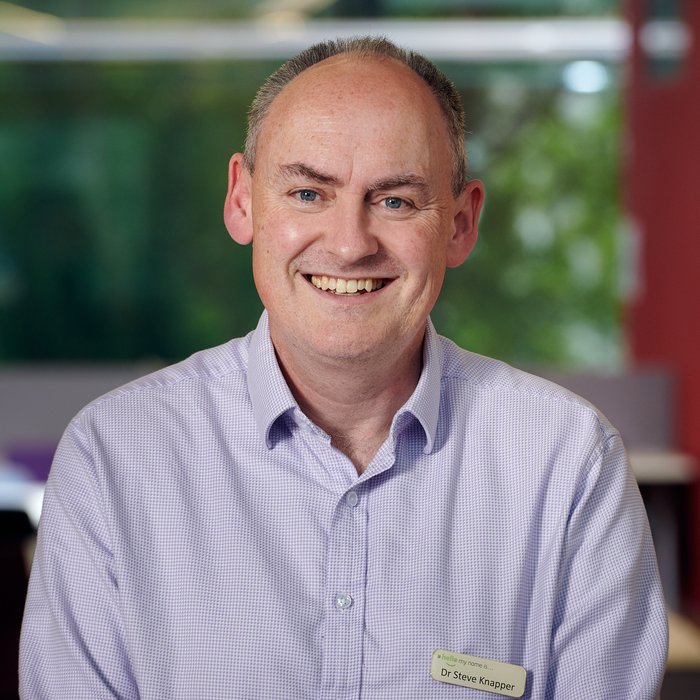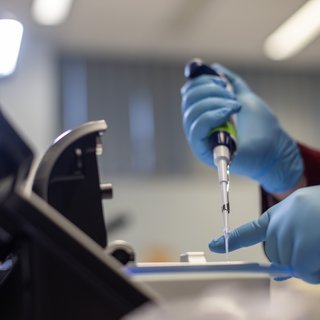New at-home treatment trialled in Cardiff could revolutionise care for rare blood cancer
Wales
On Clinical Trials Day, Blood Cancer UK announces a £750k award for researchers at Cardiff University to conduct a clinical trial testing a new treatment to be taken at home. This exciting new clinical trial could transform the way acute promyelocytic leukaemia (APL) is treated.

Professor Steven Knapper
Around 200–300 people in the UK per year are diagnosed with this form blood cancer - a rare and aggressive form of the disease that is very difficult to treat.
Treatment for APL is very intense and time consuming, involving many hospital visits and long appointments. Patients currently receive many arsenic trioxide infusions given through a drip into a vein to help kill the APL cells and stop them from growing.
In recent years patient outcomes in APL have been massively improved but the treatment schedule remains arduous."
- Professor Steven Knapper
In this clinical trial, Professor Steven Knapper and his team plan to test a new form of arsenic treatment that involves taking an oral formulation at home instead of travelling to hospital to receive infusions.
Professor Knapper, Professor in Haematology from Cardiff University, said:
“We’re hugely excited that with the generous help of Blood Cancer UK, we will now be able to offer this important new clinical trial to more than 200 recently diagnosed APL patients.
“In recent years patient outcomes in APL have been massively improved but the treatment schedule remains arduous.
“We’re seeking to improve patient quality of life and enable patients to return more quickly to their normal pre-diagnosis activities, through the use of an ’all oral’ consolidation treatment programme that they can take at home.“
During the trial half of study participants will have to travel to hospital to receive infusions and the other half will take this new oral treatment at home for six months. The researchers will then compare both treatments to see how well the APL is controlled. They will monitor side effects and assess overall quality of life and treatment costs for the NHS.
The hope is that this ‘at-home’ treatment will work just as well, offering a much easier treatment option with fewer side effects.
There is a need for better treatments that place less burden on people with APL and their families, allowing them to lead a more normal life.
Linda Hurst, 76 from Cardiff said:
“I feel very strongly about the value of clinical trials for everyone but in particular for patients who have already been diagnosed. I was diagnosed with AML in 2020 and was fortunate enough to be under the incredible care of Prof Steve Knapper and his team. Right at the beginning of my treatment I was asked to take part in a clinical trial. At the time I didn’t really appreciate the benefits of these trials but as a family we all thought ‘what have we got to lose’. I am now so pleased that I did agree as not only did the trial help to determine whether a new treatment would be more effective but also whether there would be less harmful side effects than other or existing treatments.”
This research forms part of Blood Cancer UK’s latest £4.9million funding round, the largest amount the charity has invested in a single scheme for over a decade.
Dr Rubina Ahmed, Director of Research, Policy and Services at Blood Cancer UK, said:
“Blood cancer is the UK’s third largest cancer killer and while recent research advances have already led to significant improvements in the range of treatments people can access, much more is needed to improve survival.
“Funding this clinical trial being led by researchers in Cardiff reflects the charity’s commitment to fund research into new treatments that are not only more effective but also kinder, with fewer side effects for people with blood cancer. It’s fantastic this new project is now up and running on a day where we celebrate the importance of clinical trials, which are vital for ensuring we beat blood cancer in a generation.”

